-
 bitcoin
bitcoin $87959.907984 USD
1.34% -
 ethereum
ethereum $2920.497338 USD
3.04% -
 tether
tether $0.999775 USD
0.00% -
 xrp
xrp $2.237324 USD
8.12% -
 bnb
bnb $860.243768 USD
0.90% -
 solana
solana $138.089498 USD
5.43% -
 usd-coin
usd-coin $0.999807 USD
0.01% -
 tron
tron $0.272801 USD
-1.53% -
 dogecoin
dogecoin $0.150904 USD
2.96% -
 cardano
cardano $0.421635 USD
1.97% -
 hyperliquid
hyperliquid $32.152445 USD
2.23% -
 bitcoin-cash
bitcoin-cash $533.301069 USD
-1.94% -
 chainlink
chainlink $12.953417 USD
2.68% -
 unus-sed-leo
unus-sed-leo $9.535951 USD
0.73% -
 zcash
zcash $521.483386 USD
-2.87%
What is the transfer speed of USDT?
USDT transfer speeds vary drastically depending on the chosen network (Omni, ERC-20, TRC-20, BEP-20), with TRC-20 and BEP-20 generally fastest but fees and network congestion impacting overall time and cost.
Mar 11, 2025 at 06:20 am
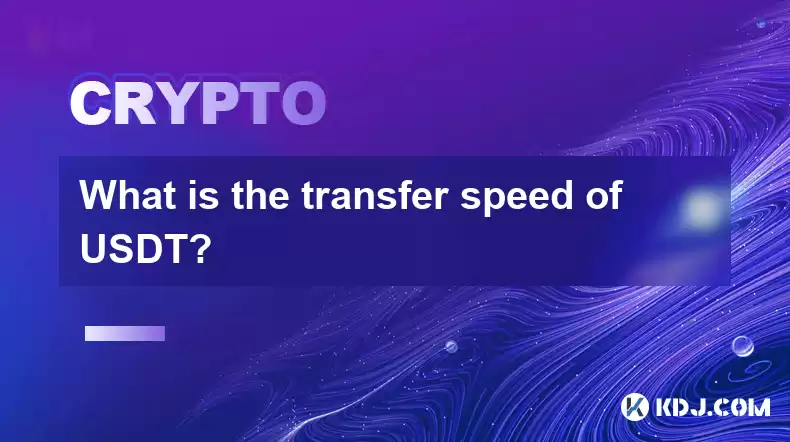
- USDT transfer speeds vary significantly depending on the network used (e.g., Omni, ERC-20, TRC-20, BEP-20).
- Transaction fees also vary greatly across different networks, impacting the overall cost-effectiveness.
- Network congestion plays a crucial role in determining actual transfer times.
- Choosing the right network is critical for optimizing both speed and cost.
- Understanding the differences between these networks is essential for efficient USDT transfers.
The question of USDT transfer speed isn't straightforward. USDT, a stablecoin pegged to the US dollar, exists on various blockchains, each with its own transaction speeds. There's no single answer; the speed depends entirely on the network used to send the USDT. This means understanding the underlying blockchain is crucial to predicting transfer times.
USDT on Different Blockchains:- Omni Layer (on Bitcoin): USDT was initially issued on the Omni Layer protocol, a layer built on top of the Bitcoin blockchain. Transfer speeds here are relatively slow, often taking several minutes to hours, due to Bitcoin's inherent transaction processing limitations. However, fees tend to be relatively low compared to other networks.
- ERC-20 (on Ethereum): The ERC-20 standard allows USDT to operate on the Ethereum blockchain. Transaction times here are generally faster than Omni, usually completing within minutes. However, Ethereum's transaction fees (gas fees) can be significantly higher, especially during periods of high network congestion.
- TRC-20 (on Tron): The TRC-20 standard utilizes the Tron blockchain, known for its high throughput and fast transaction speeds. USDT transfers on TRC-20 are typically very quick, often completing within seconds or minutes. Transaction fees are also generally lower than Ethereum.
- BEP-20 (on Binance Smart Chain): Similar to TRC-20, BEP-20 leverages the Binance Smart Chain (BSC), offering fast transaction speeds and relatively low fees. This makes it a popular choice for quick and cost-effective USDT transfers.
Several factors beyond the chosen blockchain influence the actual transfer speed:
- Network Congestion: High network activity on any blockchain can lead to delays. During peak times, transactions might take longer to process, regardless of the network's inherent speed.
- Transaction Fees: Higher transaction fees can sometimes incentivize miners or validators to prioritize your transaction, leading to faster processing. However, this isn't guaranteed.
- Miner/Validator Fees: The amount of fees paid influences the priority your transaction receives within the network. Higher fees often result in faster confirmation times.
- Wallet Provider: The specific wallet used can also impact transfer times. Some wallets are more efficient than others in broadcasting transactions.
Let's assume you're sending USDT via the TRC-20 network:
- Open your wallet: Access your cryptocurrency wallet containing USDT.
- Select 'Send': Locate the 'Send' or 'Transfer' option within your wallet.
- Enter recipient's address: Carefully input the correct TRC-20 address of the recipient. A single typo can result in irreversible loss of funds.
- Specify amount: Input the desired amount of USDT to transfer.
- Choose network: Ensure 'TRC-20' is selected as the network.
- Review and confirm: Double-check all details before confirming the transaction.
This process is similar across different networks, with the key difference being the network selection.
Choosing the Right Network:Selecting the optimal network for sending USDT requires considering both speed and cost. If speed is paramount, TRC-20 or BEP-20 are usually preferred. If minimizing fees is more important, Omni or TRC-20 might be better choices, depending on network congestion.
Common Questions:Q: What is the fastest network for USDT transfers?A: Generally, TRC-20 and BEP-20 offer the fastest transfer speeds, but this can vary due to network congestion.
Q: Are there any risks associated with fast USDT transfers?A: While speed is advantageous, using less-established networks might carry slightly higher risks, although this is largely mitigated by reputable wallet providers.
Q: How can I check the status of my USDT transfer?A: Most wallets provide transaction tracking capabilities, allowing you to monitor the progress of your transfer on the blockchain explorer for the specific network used (e.g., Tronscan for TRC-20).
Q: What happens if I choose the wrong network?A: Sending USDT to the wrong network (e.g., sending ERC-20 USDT to a TRC-20 address) will likely result in the loss of your funds. Always double-check the network and address before confirming the transaction.
Q: Why are there different networks for USDT?A: Different blockchains offer different features, like speed, transaction fees, and security, allowing users to choose the best option based on their needs. USDT's presence on multiple blockchains expands its accessibility and utility.
Disclaimer:info@kdj.com
The information provided is not trading advice. kdj.com does not assume any responsibility for any investments made based on the information provided in this article. Cryptocurrencies are highly volatile and it is highly recommended that you invest with caution after thorough research!
If you believe that the content used on this website infringes your copyright, please contact us immediately (info@kdj.com) and we will delete it promptly.
- Blockchains, Crypto Tokens, Launching: Enterprise Solutions & Real Utility Steal the Spotlight
- 2026-01-31 12:30:02
- Solana's Stumble and APEMARS' Rise: Crypto Investors Navigate Volatile Markets
- 2026-01-31 13:05:01
- Bitcoin Options Delta Skew Skyrockets, Signaling Intense Market Fear Amidst Volatility
- 2026-01-31 13:00:02
- Cardano Secures Tier-One Stablecoin: USDCX Arrives Amidst Global Regulatory Push
- 2026-01-31 13:00:02
- A Shining Tribute: Oneida Woman, Washington's Army, and the New $1 Coin
- 2026-01-31 12:55:01
- Super Bowl LX: Coin Toss Trends Point to Tails Despite Heads' Recent Surge
- 2026-01-31 07:30:02
Related knowledge
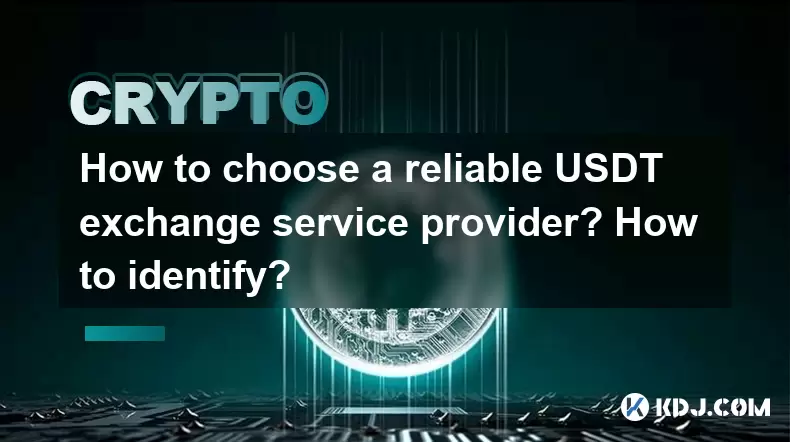
How to choose a reliable USDT exchange service provider? How to identify?
Jun 12,2025 at 03:15pm
Understanding the Role of USDT in Cryptocurrency TradingUSDT (Tether) is one of the most widely used stablecoins in the cryptocurrency market. It is d...
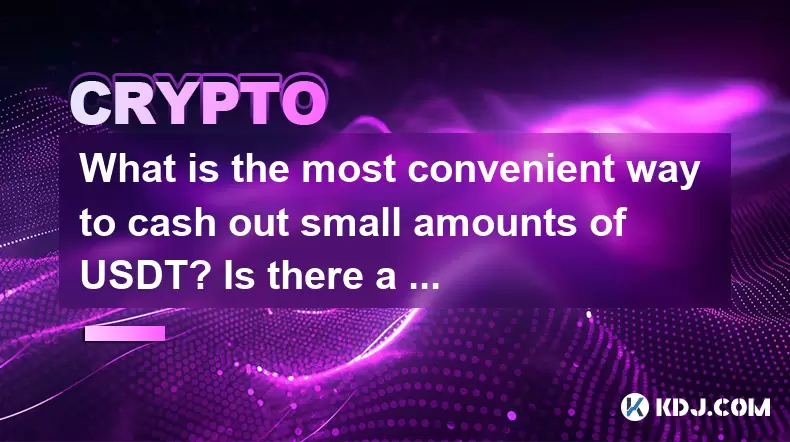
What is the most convenient way to cash out small amounts of USDT? Is there a shortcut?
Jun 11,2025 at 11:00pm
Understanding the Need to Cash Out Small USDT AmountsCashing out small amounts of USDT can be a challenge for many crypto users. Traditional methods o...
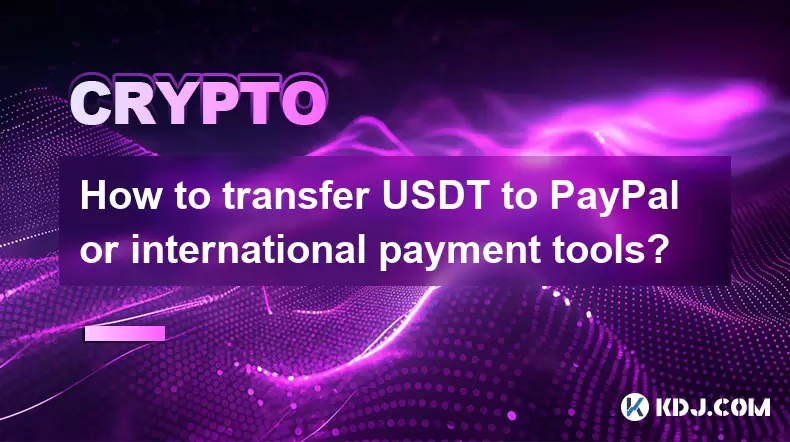
How to transfer USDT to PayPal or international payment tools?
Jun 15,2025 at 05:28am
Understanding the Basics of USDT and PayPal IntegrationUSDT (Tether) is a stablecoin pegged to the US dollar, offering blockchain-based value transfer...
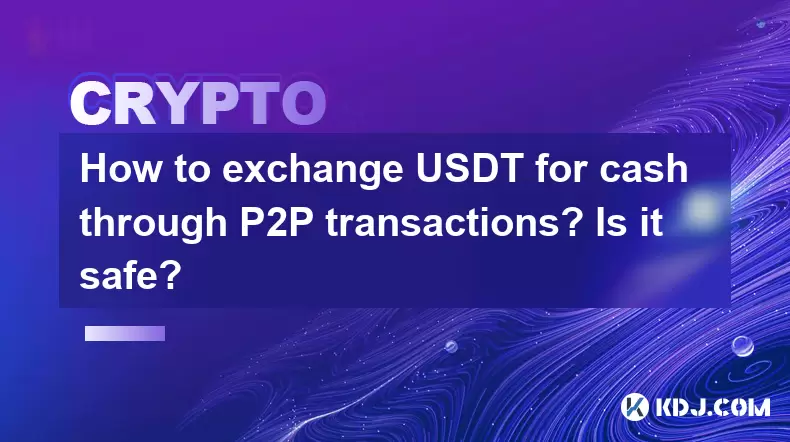
How to exchange USDT for cash through P2P transactions? Is it safe?
Jun 18,2025 at 07:56am
Understanding USDT and P2P TransactionsTether (USDT) is a stablecoin pegged to the value of the US dollar, making it a popular choice for users who wa...
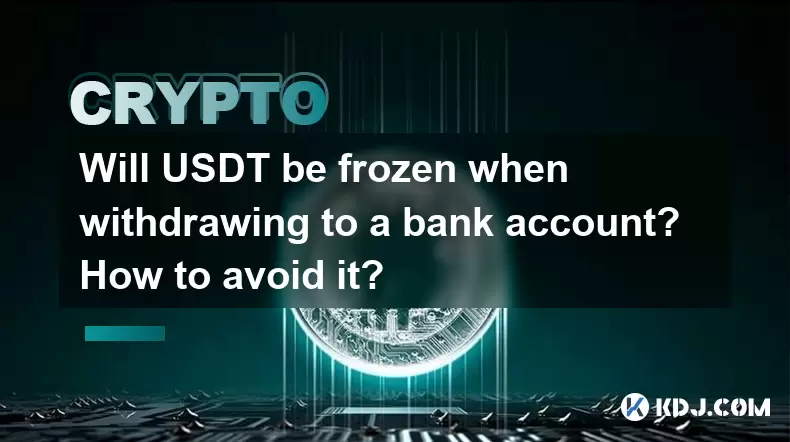
Will USDT be frozen when withdrawing to a bank account? How to avoid it?
Jun 15,2025 at 10:03am
Understanding USDT Withdrawals and Bank Account Freezing RisksWhen users decide to withdraw USDT (Tether) to a bank account, one of the most common co...

How to avoid risks when exchanging USDT for cash? What are the pitfalls?
Jun 11,2025 at 08:14pm
Understanding the Risks of Exchanging USDT for CashWhen exchanging USDT (Tether) for cash, users must be aware of the potential risks involved. As a s...

How to choose a reliable USDT exchange service provider? How to identify?
Jun 12,2025 at 03:15pm
Understanding the Role of USDT in Cryptocurrency TradingUSDT (Tether) is one of the most widely used stablecoins in the cryptocurrency market. It is d...

What is the most convenient way to cash out small amounts of USDT? Is there a shortcut?
Jun 11,2025 at 11:00pm
Understanding the Need to Cash Out Small USDT AmountsCashing out small amounts of USDT can be a challenge for many crypto users. Traditional methods o...

How to transfer USDT to PayPal or international payment tools?
Jun 15,2025 at 05:28am
Understanding the Basics of USDT and PayPal IntegrationUSDT (Tether) is a stablecoin pegged to the US dollar, offering blockchain-based value transfer...

How to exchange USDT for cash through P2P transactions? Is it safe?
Jun 18,2025 at 07:56am
Understanding USDT and P2P TransactionsTether (USDT) is a stablecoin pegged to the value of the US dollar, making it a popular choice for users who wa...

Will USDT be frozen when withdrawing to a bank account? How to avoid it?
Jun 15,2025 at 10:03am
Understanding USDT Withdrawals and Bank Account Freezing RisksWhen users decide to withdraw USDT (Tether) to a bank account, one of the most common co...

How to avoid risks when exchanging USDT for cash? What are the pitfalls?
Jun 11,2025 at 08:14pm
Understanding the Risks of Exchanging USDT for CashWhen exchanging USDT (Tether) for cash, users must be aware of the potential risks involved. As a s...
See all articles





















![Ultra Paracosm by IlIRuLaSIlI [3 coin] | Easy demon | Geometry dash Ultra Paracosm by IlIRuLaSIlI [3 coin] | Easy demon | Geometry dash](/uploads/2026/01/31/cryptocurrencies-news/videos/origin_697d592372464_image_500_375.webp)




















































